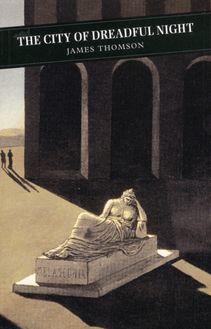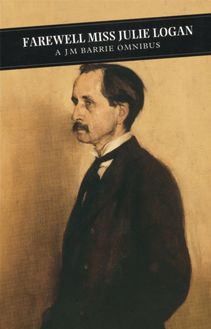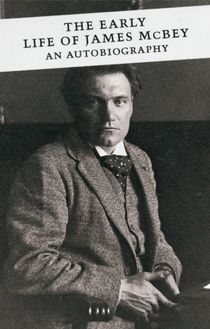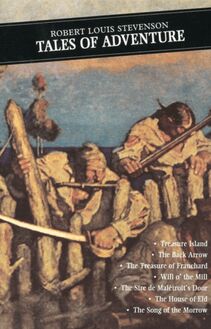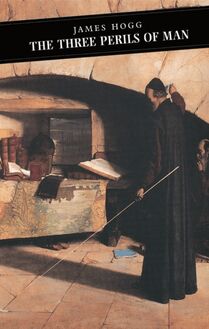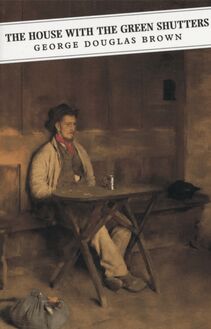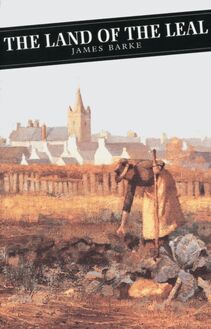Household Ghosts: A James Kennaway Omnibus , livre ebook
251
pages
English
Ebooks
2010
Vous pourrez modifier la taille du texte de cet ouvrage
Obtenez un accès à la bibliothèque pour le consulter en ligne En savoir plus
Découvre YouScribe en t'inscrivant gratuitement
Découvre YouScribe en t'inscrivant gratuitement
251
pages
English
Ebooks
2010
Vous pourrez modifier la taille du texte de cet ouvrage
Obtenez un accès à la bibliothèque pour le consulter en ligne En savoir plus
Publié par
Date de parution
01 juillet 2010
Nombre de lectures
0
EAN13
9781847674944
Langue
English
Publié par
Date de parution
01 juillet 2010
Nombre de lectures
0
EAN13
9781847674944
Langue
English
JAMES KENNAWAY
Household Ghosts
A James Kennaway Omnibus
Introduced by Gavin Wallace
TUNES OF GLORY HOUSEHOLD GHOSTS SILENCE
Contents
Introduction
TUNES OF GLORY
BOOK ONE The Complexion of the Colonel
BOOK TWO The Beating of Retreat
BOOK THREE The Funeral Orders
HOUSEHOLD GHOSTS
BOOK ONE A Country Dance
BOOK TWO A Breakfast Cabaret
BOOK THREE The Big City
BOOK FOUR The Wake
BOOK FIVE From the Lab
SILENCE
Introduction
Of that familiar litany of Scottish literary talent cruelly cut down at the age of greatest promise, the case of James Kennaway is stranger than most. When he was killed in a motorway collision in 1968 at the age of only forty, he had already achieved that distinction rare in Scottish literature: an oeuvre which can truly be termed ‘complete’, even though fate decreed that two of his novels were destined for posthumous publication. It was a remarkable legacy for this most anguished of twentieth-century Scottish novelists, and yet a satisfactory sense of aesthetic completion eluded him right up until the tragic, and seemingly predestined, end.
Kennaway’s striving for a perfection of fictional form and style was as worthy of any modernist icon for whom pursuit of the ‘pure’ novel was a quasi-religious vocation. Each of his six novels took a progressively more indirect and sophisticated approach to narrative technique, culminating in the almost shocking minimalism of the posthumous Silence (1972). For all the novels’ formal variations, however, the constants are clear: intensely vivid characterisation, a powerfully visual quality of narrative, and a consummate control of highly sophisticated dialogue. Thematically, their common ground is that of power relationships in the institutional contexts of family, class and nation. Kennaway’s characters are riven by divisions, inflicted and self-imposed and the theme of entrapment, both literal and metaphorical, weaves a bright strand throughout his fiction. His fascination with individuals who are torn between the imperatives of idealistic yearning and social and moral restraints locates his fiction firmly within a Scottish tradition, though only two of his novels were ever set in the land of his birth.
After the remarkable success of his debut Tunes of Glory in 1956, Kennaway asserted, somewhat testily, that he was ‘a novelist from Scotland, and not a Scottish novelist’. 1 Like his contemporary and fellow creative exile Muriel Spark, Kennaway’s tangential relationship with ‘a Scottish formation’ is a continuing enigma, and his own distinction – shared by many Anglo-Scottish writers – is a salutary one for a country which must be ever more mindful of the dangers of herding its creative pedigree into cosy ethnic enclosures. Tunes of Glory and Household Ghosts are haunted by a gallery of horribly familiar native spectres – division, defeat, and denial to name but three – but it is also important to be aware of forces within these novels which struggle towards absolution from a nation’s cultural pieties.
Modelled closely on the author’s own bittersweet experiences of army life (he served as an officer in the Cameron Highlanders), Tunes of Glory was an extraordinarily accomplished fictional debut, and remains the finest literary exploration of Scottish militarism – a subject which has received surprisingly scant artistic attention, given its hardly insignificant impact on the nation’s historical trajectory and self-image. The novel remains Kennaway’s most accessible, and its popular reputation was consolidated by the film version of 1960, directed by Ronald Neame. Kennaway’s own flawless screenplay for the film is testimony to the luminous characterisation and visual power of the original text.
The implications of the novel surpass the starkly simple dynamics of the conflict that forms the centre of its drama. Not for the first time, Kennaway takes unprepossessing, if not banal, material and mines from it undetected depths. The barrack-room-boy braggadocio of the swaggering and aggressive Jock Sinclair – a soldier’s soldier fuelled on whisky and a fading reputation for wartime heroics – is brought into self-destructive confrontation with the intro-verted and ineffectual, but seemingly privileged, Eton and Sandhurst officer Basil Barrow, who arrives to depose the working-class, ex-ranker Jock as the new Colonel. The ensuing psychological conflict engineered by the resentful Jock is a sublimated war between two cultures fuelled by class prejudice. This is not just a rehearsal of stale Scottish grievance versus complacent English insensitivity, however, for the novel’s deceptively straightforward narrative subverts the anticipated tragic outcome.
When Jock plays into Barrow’s hands by striking a corporal piper he finds with his daughter, it appears that the former will capitulate first. But it is Jock who finds the endurance to sustain himself long enough to undermine, cynically, Barrow’s inability to take decisive action against him through fear and repressed admiration. Incapable of bearing the psychological strain, Barrow shoots himself. Jock, in turn, finds that the pity and shame suppressed in Barrow have now been awakened in himself. In the closing chapter, in twenty pages of great brilliance, Jock’s hyperbolic funeral orders for the dead colonel are both a moving threnody for the sacrifice of all soldiers, and a mock-heroic deconstruction of the militarist ideology which drags Jock into his final and inexorable mental collapse.
The tragic irony of the novel is that the two protagonists are each destroyed by their inability to comprehend the one virtue they might be said to possess: fear. Within Barrow’s brittle inability to destroy the fellow soldier whose heroism he admires there resides an incipient humanity, which the military code cannot sanction. Conversely, it is Jock’s dawning fear that his very identity as a wartime hero and leader of men is incompatible with the constraints of postwar society, which finally consumes him.
It is no coincidence that Tunes of Glory was published in the year of the Suez Crisis, the humiliation of which effectively symbolised the end of Britain’s aspirations as a post-imperial world power. As an anatomy of the dichotomies and hypocrisies festering within Scottish society – telescoped within the claustrophobia of barrack life – Kennaway’s ruthless grasp of moral irony closely resembles that of his other great contemporary, Robin Jenkins. But Kennaway goes further. In a post-feminist context, it becomes possible to re-read Tunes of Glory as a disturbing study of masculinity itself in crisis. The novel has been faulted for giving its women characters scant treatment, but this is missing the point: the role of women as an ‘absent presence’ throughout the text acts as a metaphorical symptom of the very condition the novel seeks to anatomise.
In Jock’s aggressiveness and Barrow’s passivity we find two irreconcilable forces akin to the ‘masculine’ and ‘feminine’ principles at war in the male psyche. Absent women figures play a key role in both Jock’s and Barrow’s respective dysfunctions. The reason for Jock’s status as a single parent is left tantalisingly unexplained, whereas Barrow’s recent divorce is clearly implied as a major factor in his instability. Jock’s relationships with the novel’s two women characters – his daughter Morag and his mistress, the failed actress Mary Titterington – both founder on the rocks of male sexual jealousy, and their breakdown ultimately precipitates the events of the tragedy.
Less straightforward are the not infrequent hints of homoeroticism which ripple through the text. It is present in Barrow’s repressed ‘love’ for Jock’s heroic past and Jock’s ritualised and theatrical final tribute to Barrow; it is present as farce in the parodic spectacle of the soldiers dancing with each other in the opening chapter, and it will re-surface as tragedy in a crucial episode in the novel, when Jock and Mary arrive at a moment of short-lived mutual understanding and redemption in the symbolic confines of her dilapidated theatre dressing-room. Mary’s agonised confession of her love for Jock contains the novel’s most candid allusion to the repressed sexual ambiguity which Jock is unequipped to acknowledge:
He held her stiffly, and with hard lips he kissed her brow, by the border of her hair. He asked innocently, ‘Are you saying that you love me, Mary?’
It was agony for her. ‘Jock, of course I am. Of course I am. Like any other woman that’s ever known you,’ she said and she looked up at him for a second. ‘And I’m no sure it isn’t every man, too.’
He laughed at that. He tried to make it all a joke. ‘Here, here, now. That’s a very sophisticated sort of notion. That’s too complex for me.’
Earlier, she has told him: ‘… it’s you that doesn’t see the half of your men’, in an exchange where she cannot decide whether Jock is ‘a child’, ‘a lovely man’, or ‘a bloody king’. Jock cannot see the other potential ‘half’ of himself, only the reflection of the ‘sad soldier’ reflected in the mirror in the couple’s final embrace. The sad soldier is conditioned through the military code to suppress the ‘lovely man’ through a ‘childish’ reflex to order and control the world as the ruler with blood on his hands. It is as much Barrow’s predicament – the other missing ‘half’ in the mirror in this psychologically and symbolically dense scene – as Jock’s.
The subtextual gestures towards issues of gender and sexuality in Tunes of Glory suggest a prelude to Kennaway’s more direct approach in the subsequent novels, where decisive, and assertive, women characters suddenly occupy centre stage. Mary Ferguson’s tortured quest for fulfilment is at the centre of the classic Kennaway love-triangle in Household Ghosts (1961), the novel that reveals most about the author’s ambivalent perspective on his Scottish background and shows an increasing attraction to allegorical frameworks. T
